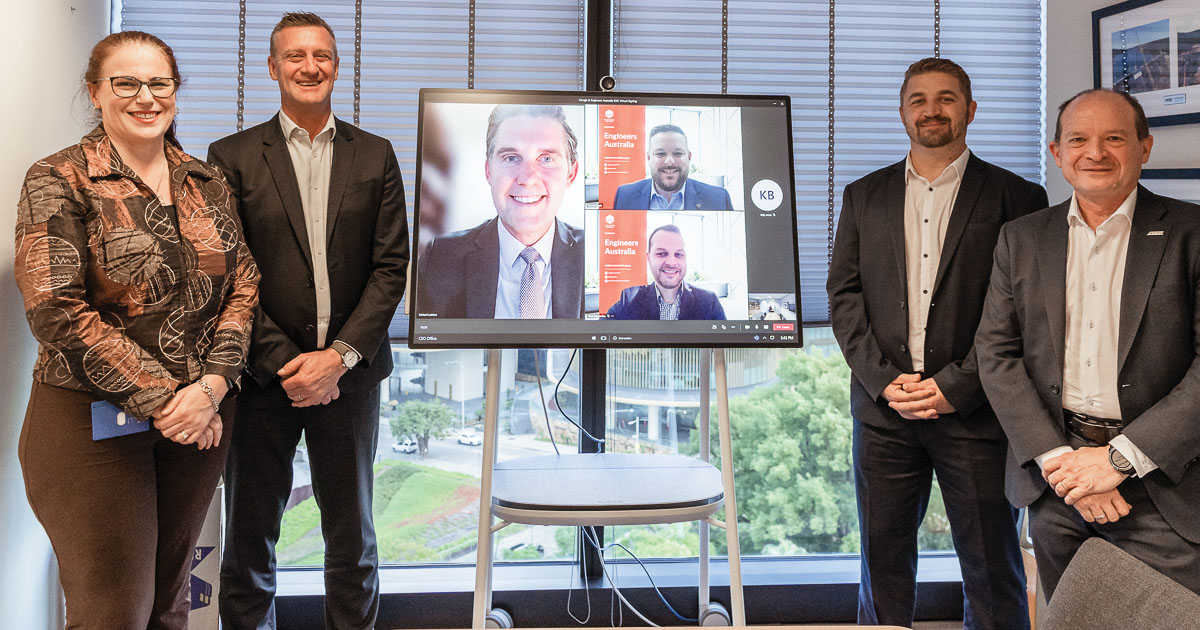Clough is pleased to announce it has signed a 3-year Partnership Agreement with Engineers Australia (EA) for their Engineering Workforce Credentialing (EWC) Program, supporting Clough’s engineers to become Chartered.
Clough is the first company in Western Australia to sign this agreement with EA.
As the leading engineering body in Australia, Chartership with EA is a professionally recognised accreditation that is highly valued throughout the engineering industry. The EWC Program will provide EA memberships to engineers across the business and offer a streamlined pathway to Chartership, opening career pathways across the globe for our engineers, and ensuring their skills are recognised internationally.
Peter Bennett, Clough CEO and Managing Director, said: “Clough has over 103 years of engineering expertise and this partnership reinforces our commitment to building on the legacy we carry and will support the ongoing development of our current and future engineers, encouraging them to achieve Chartered status.”
Jillian Formentin, Clough Engineering Director APAC, said: “This partnership with Engineers Australia will enhance our in-house engineering capabilities as a business and aligns our engineering standards with those of Chartered engineers around the world, creating even more exciting and impactful opportunities for our engineers to fulfill their highest potentials.”
Michael Luddeni, Acting Engineers Australia CEO, said: “It’s critical for organisations to stand out in a highly competitive market. As the first WA company to partner with EA for their Engineering Workforce Credentialing Program, Clough is distinguishing itself and further signifying its commitment to the very highest of professional engineering standards.”
For an engineer to gain Chartered status, it involves proving and maintaining competency in a number of areas across personal commitment, obligation to the community, value in the workplace, professional standards and ethics, and technical proficiency.
The Chartered credential can be earned across 26 areas of engineering practice and includes assessment for registration on the National Engineering Register.
Latest news


